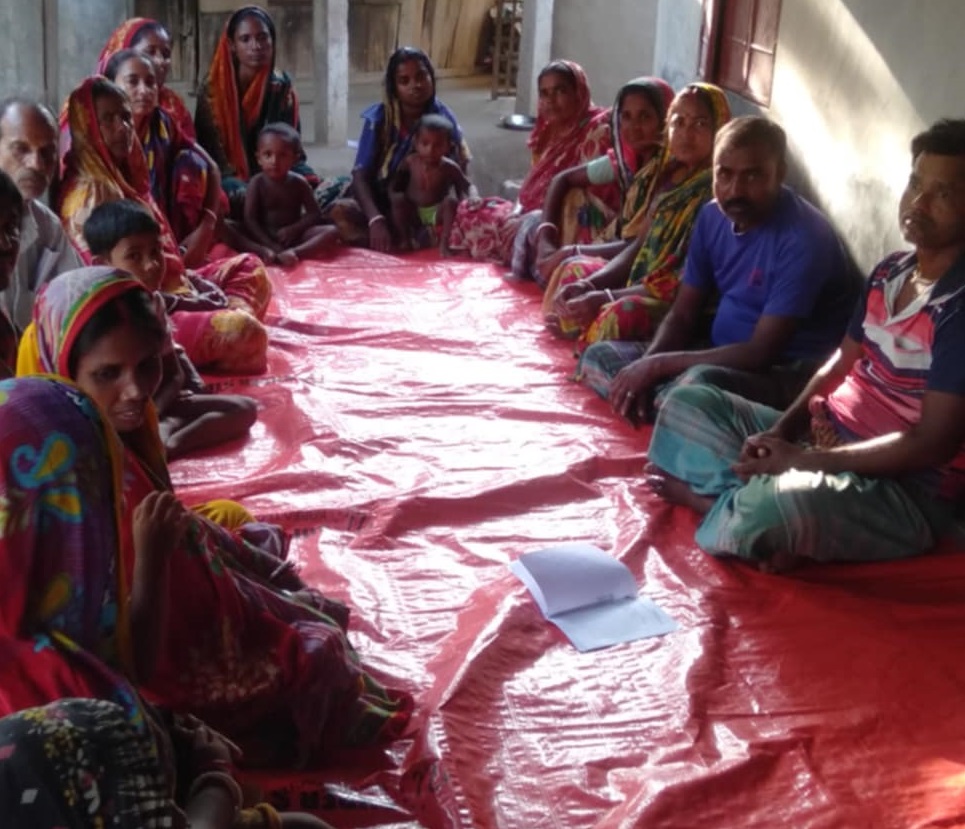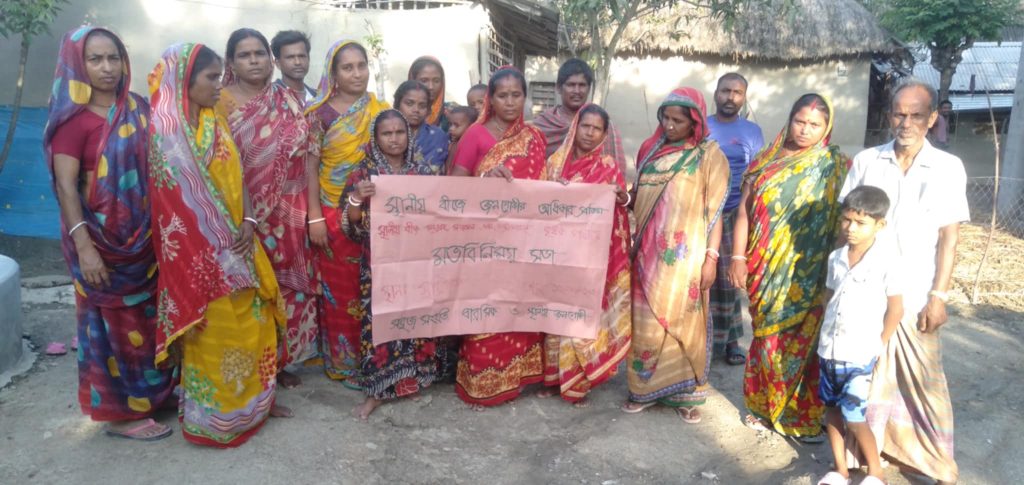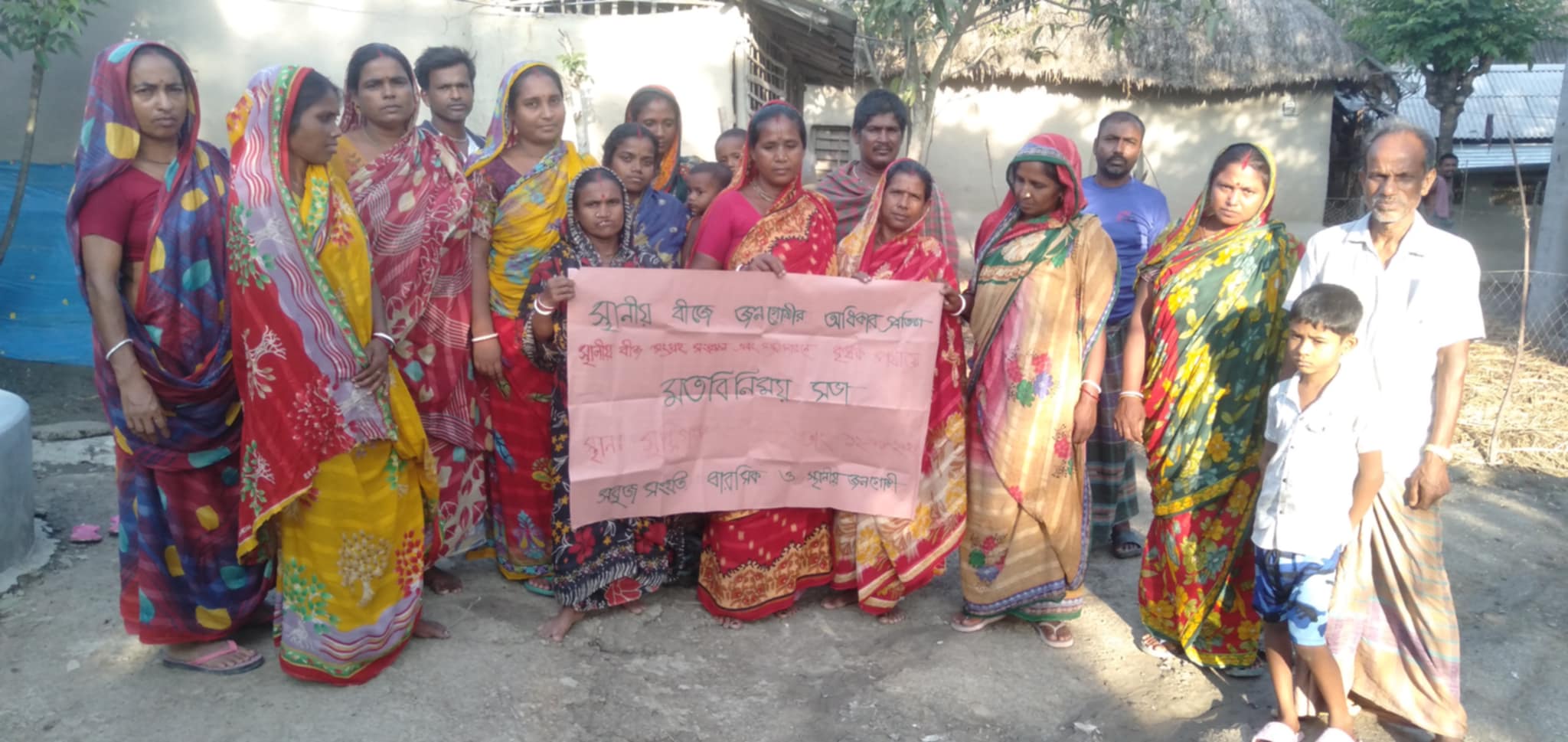By Biswajit Mondal from Shyamnagar, Satkhira
A farmer-level exchange meeting on the collection, conservation, and expansion of local seeds was held at the Agroecology Learning Centre in Munshiganj Union under Shyamnagar upazila recently. The event was jointly organized by Green Coalition, Paschim Jelekhali Farmers’ Organization, and Shapla Krishi Nari Sangathan, with support from BARCIK.

The meeting, chaired by Green Coalition member Bhudhar Chandra Mondal, brought together 30 participants including members of “Shotobari” (Nutrition Bank) of Jelekhali village, members of the learning centre, teachers, students, and local male and female farmers.
During the discussion, participants exchanged ideas on the importance and benefits of native seeds, traditional versus modern seed varieties, various seed conservation techniques, the concept of seed banks, and the challenges and solutions for expanding the use of local seeds.
Farmer Ganesh Mondal said, “Seeds are our wealth. They are the soul of farmers. If we don’t have access to good seeds, we can’t sustain our livelihoods. We used to conserve many types of seeds ourselves.” He went on saying, “But now, due to increasing soil salinity, climate change, and market domination by corporate seed companies, we are becoming increasingly dependent on commercial seeds. However, these are often expensive and unreliable, and they’re hurting our profitability.”

Female farmer Purnima Rani added, “Most households in our village still conserve some seeds and exchange them seasonally. Home-conserved seeds provide better yields, are less vulnerable to pests, require less fertilizer, and taste better. They give us flexibility and food security.”
Bhudhar Chandra Mondal reflected on the diversity of crops that once thrived in the region, saying, “Our area used to grow many indigenous rice varieties like Baran, Khejurchhori, Hogla, Bajramuri, Chinikani, Patnai, Talmugur, Boyarbaut, and Darshail, along with mustard, grass peas, lentils, flax, wheat, maize, and sunflower. Now, most of these rice varieties have disappeared. Only a few like Chinikani and Kashrail are still cultivated. But vegetables, pulses, spices, and gourds are still grown.”
The meeting concluded with a shared commitment to conserve local biodiversity and reduce dependence on commercial seed markets.

